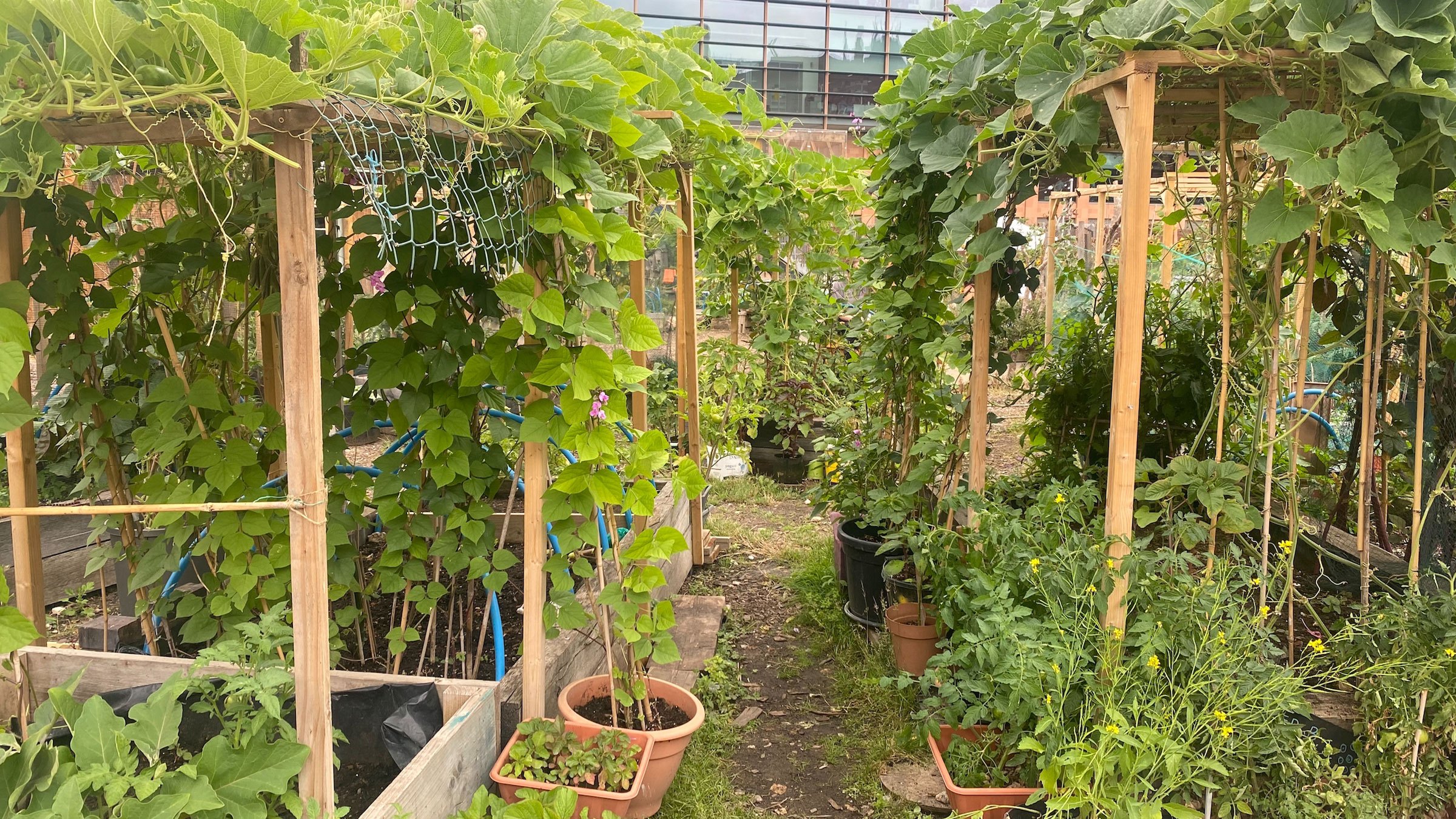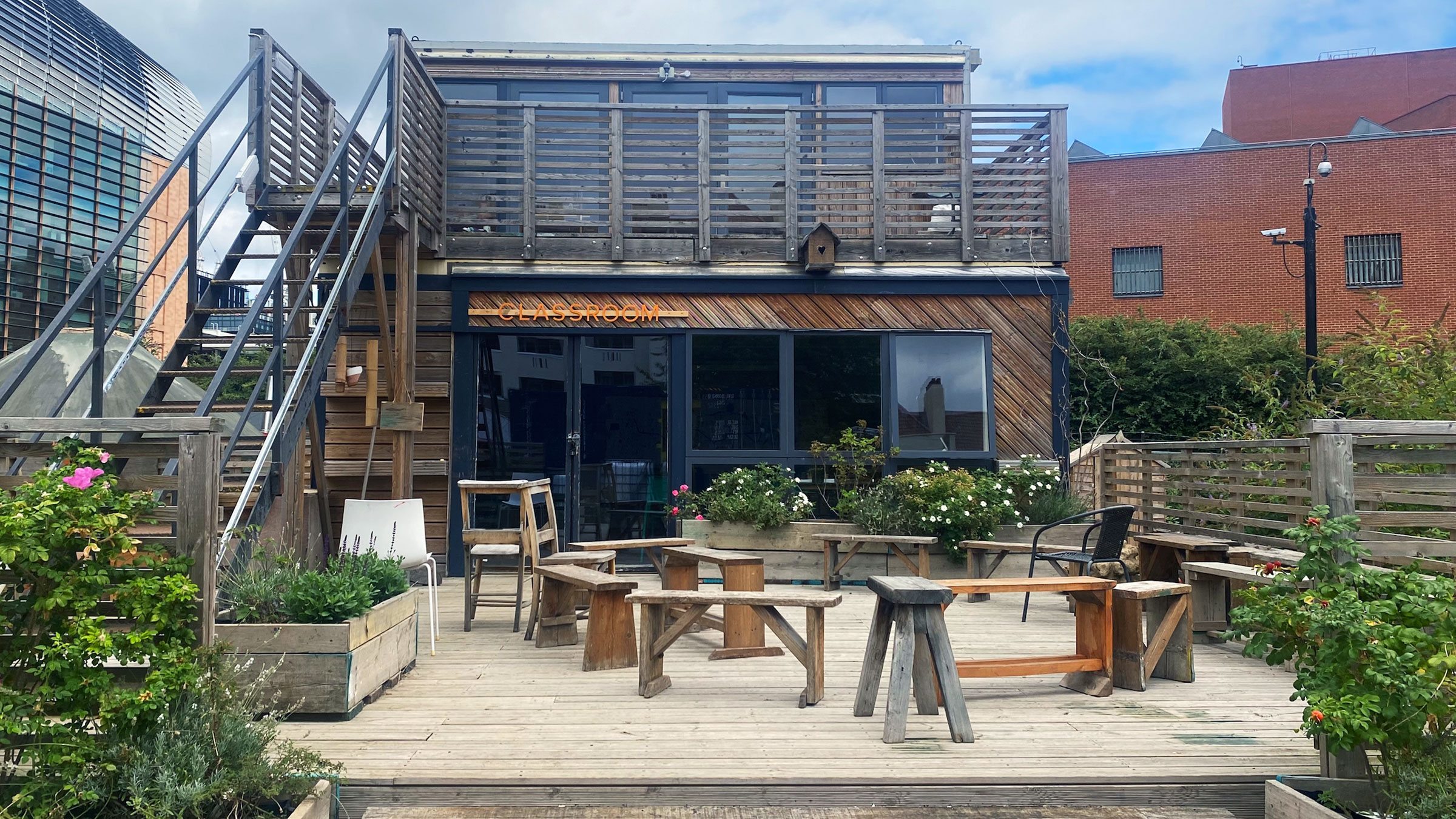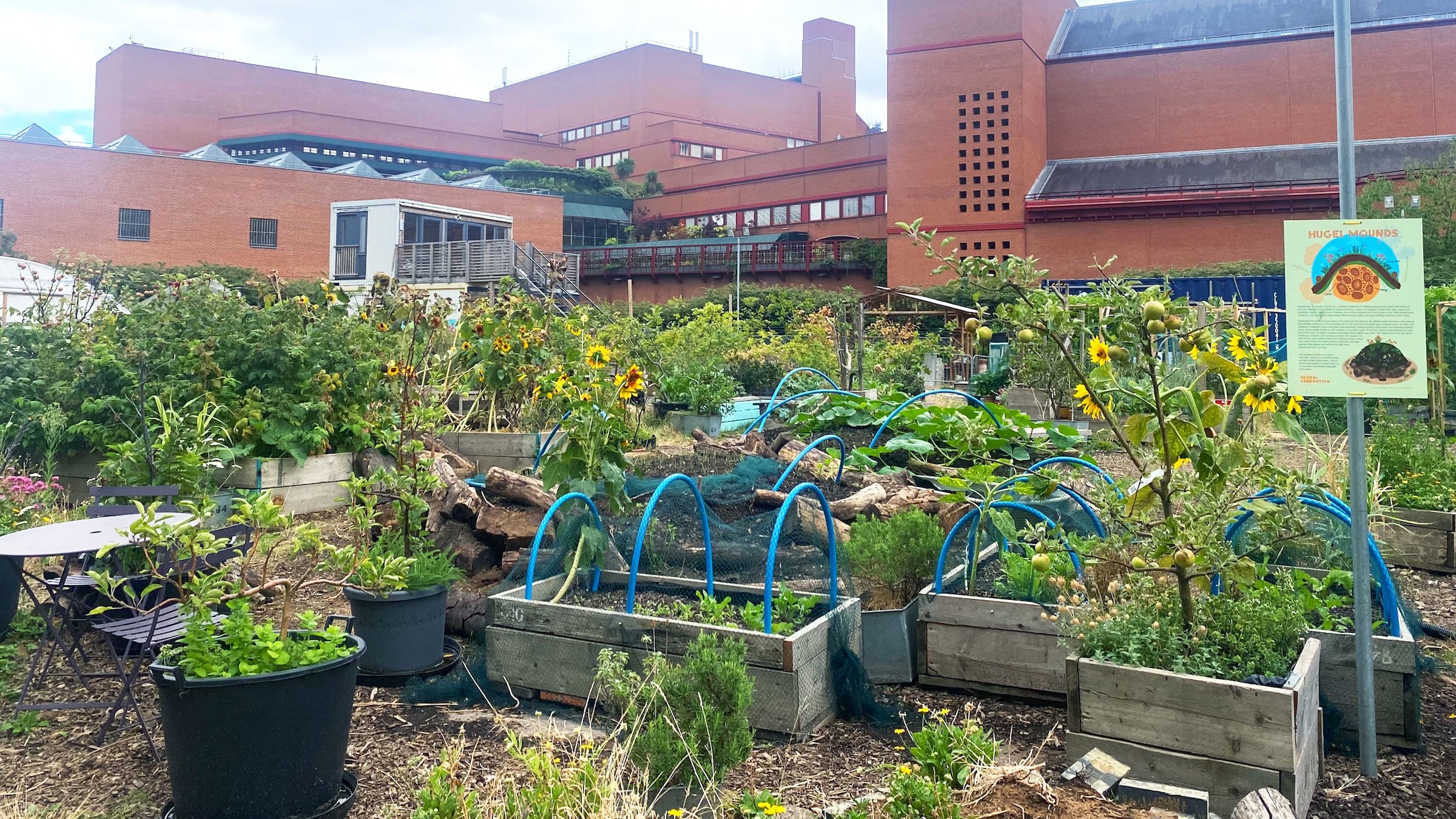If any of you have ever taken a meeting with Saul Klein, Managing Partner at Phoenix Court Group (home of VC funds Local Globe and Latitude), he will insist that you meet at their offices and take you for a walk around the local area. Phoenix Court Group is headquartered in a council-owned property right behind the Francis Crick Institute in Somers Town, in the borough of Camden.
On such a walk, you may well walk down Chalton Street, where a flourishing street market is held Wednesday to Friday. Chalton Street is also the home of The Somers Town Festival, Camden’s biggest street festival, which attracts about 10,000 people every July to celebrate the area’s diverse cultural communities.
You will inevitably pass the Story Garden, a community garden just a stone’s throw away from Phoenix Court. This week, I paid another visit to Story Garden.
On a grey Tuesday it wasn’t particularly busy, but it still hummed with life. For the half an hour or so I was there I was joined by a group of office workers, who perched on a bench to enjoy their packed lunches; a family whiling away the school holidays; a few local gardeners tending to their allotments, and two young women in their early twenties who popped in from the street. “It’s so cute,” I overheard them exclaim, “I love plants.”

Story Garden is one of handful of projects run by educational charity Global Generation. The organisation works with children, young people, schools, businesses, and residents across Camden, Islington and Southwark. Through a number of urban gardens, Global Generation facilitates corporate workshops, runs sessions with schools and provides opportunities for local communities with a focus on the environment.
The garden features dozens of allotments (some in raised beds, others in movable, colourful skips), a café complete with outdoor pizza oven, a food truck, an event space and a classroom. Plots are separated by meandering paths, apple trees, wooden benches, and wrought-iron tables and chairs on which to sit back and enjoy the surroundings.
You can tell that Story Garden is the central hub of Global Generation. Posters advertise corporate workshops, a programme of events for the summer holidays and other environmental initiatives like the creation of a ‘green mobility hub’ for scooters and ebikes. The green space also feels reassuringly homemade. The colourful, hand-painted signs and rough-around-the-edges plots are at odds with the garden’s neighbours, the imposing glass structure of the Crick Institute to the north and the tall red bricks of the British Library to the south.

Indeed, there is a particular need to be deliberate about community in Story Garden’s surrounding area of Somers Town. The ward is flanked by three major London stations, King’s Cross, St Pancras, and Euston, and for decades was associated with the poor upkeep and industrial decay around King’s Cross. But over the past ten years, a £4bn regeneration project has seen the area’s coal yards and warehouses be replaced by more than a thousand new homes, as well as offices occupied by Google and Meta, and dozens of eating, drinking and shopping spots.
While this redevelopment has been hailed a relative success when it comes to community value – more than forty percent of the new accommodation is classed as affordable – large-scale regeneration schemes are often criticised for overlooking the needs and values of existing local groups.
In an area of squeaky-clean new developments, visiting Story Garden this week was a much-needed reminder of the importance of prioritising people and local communities.
“Visiting Story Garden this week was a much-needed reminder of the importance of prioritising people and local communities.”
Indeed, for consumer businesses, the need to focus on their communities will only increase in the next period. In an acute cost-of-living crisis (yesterday it was announced that UK households face an 80% increase in energy prices in October) businesses have a role to play in supporting their customers, colleagues and wider communities.
We’ve already seen some decisive action. Iceland is blazing the trail, rolling out a raft of targeted measures including an interest-free loan of up to £100, a £30 food voucher for pensioners, and a 10% discount for all shoppers over 60. On top of this, this week the frozen food specialist introduced new packaging which features advice on how to save energy when you cook.

Elsewhere, supermarkets are focusing on keeping prices low for consumers. Asda has rolled out its budget ‘Just Essentials’ range, Sainsbury’s has launched it’s ‘Feed your Family for a fiver’ campaign and in Europe, Carrefour has announced plans to freeze the price on more than 100 everyday products.
A number of businesses are topping up pay packets with a cost-of-living payment. The CIPD’s summer Labour Market Outlook for 2022 finds that 15% of organisations have paid, or are planning to pay, such a payment to some or all their workers, while a further 15% have the matter under review. In June, for example, Morrisons announced plans to raise its minimum hourly pay for its store and manufacturing staff to £10.20, making it the highest paying supermarket in the UK.
Supporting staff financially will have a long-term commercial benefit: one in four employees say money worries affect their ability to do their job, and, according to the Centre for Economics and Business Research (CEBR), 13 million working days a year are being lost because of employees’ poor financial wellbeing.
“One in four employees say money worries affect their ability to do their job, and, according to the Centre for Economics and Business Research (CEBR), 13 million working days a year are being lost because of employees’ poor financial wellbeing.”
This cost-of-living crisis is the latest in a string of major national and international events over the past few years. And just as during the pandemic, the Black Lives Matter protests and the invasion of Ukraine, business leaders are expected to take a stand. As Richard Walker, MD for Iceland, said to Grocery Gazette last week, “fresh thinking is required by business and government to find workable solutions.”
I’m a proud resident and colleague in Camden. In my view, some of the most important things we can do in these troubling times – as individuals and as companies – is to support local businesses, look after our neighbours, and be active in our communities.








